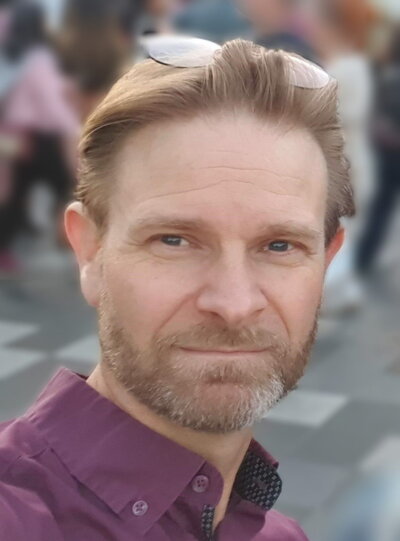

This fall, the Department of Philosophy welcomes professor Stephen Finlay to our faculty. Finlay is an alumnus of the University of Illinois who received his PhD in philosophy in 2001. He was previously the founding Director of the Dianoia Institute of Philosophy at the Australian Catholic University (2019-2024), and before that Professor of Philosophy at the University of Southern California, where he retains an adjunct affiliation and has taught since 2002. Originally from New Zealand, he received his BA and MA degrees from the University of Auckland.
Finlay's research is focused on metaethics and philosophical moral psychology, particularly the semantics and pragmatics of normative language and the nature of normativity. He has written extensively on value, the meaning of 'ought', the nature of reasons, normative disagreement and motivation. His 2014 monograph, Confusion of Tongues: A Theory of Normative Language lays out an ambitious program for solving the central problems of metaethics.
Read on for a Q&A with Finlay to learn more about his research.
What are your research interests and why are you passionate about these areas of study?
The primary focus of my research to date is metaethics, or the foundations of morality, value and normativity. “Foundations” here covers language, mind, and metaphysics. Two major motivations are (i) the Socratic imperative to question authority (why should we?), and (ii) an interest in better understanding our conflicts and disagreements, and what it might take to overcome these. Many philosophers since Plato have identified the Form of the Good as the highest object of human inquiry; I consider myself privileged to be in a position (I think!) to make genuine contributions to understanding here.
Why did you decide to join the Department of Philosophy at the University of Illinois?
The department is on a strong upwards trajectory with a promising future, which makes it a rare instance of a philosophy unit flourishing at a time when pure philosophical research is under attack in many places around the world. The University itself is one of the US’s leading public universities in a great State committed to (also beleaguered) liberal values of free inquiry, unapologetic pursuit of truth, and respect for diversity. I’m excited to joining a group of excellent colleagues, and to be returning to the US philosophical community after some years abroad.
What research projects are you working on right now?
I have a number of article-length projects all clustered around the topic of normative concepts, and I’m developing the conception of a book exploring the question “how much objectivity can we get?”, across a whole range of different philosophical topics such as modality/probability, ontology (what exists), value and morality, free will and consciousness. I’m aiming to strike a virtuous mean between the opposing theoretical vices of excessive objectivity and deficient objectivity. That involves, on one hand, rejecting absolutist views that insist on brute and inexplicable objective facts, and on the other, rejecting anti-realist views like expressivism that subtract the world and make everything about our mental states.
What classes will you teach?
Certainly a variety of courses in normative ethics, metaethics and moral psychology, but beyond that it’s hard to say as my interests and research projects are developing in many different directions, and teaching assignments always depends on department needs and gaps. At the general education level I’ve taught for many years at the University of Southern California a popular course on the Meaning of Life, and I look forward to bringing that to Illinois.
What key ideas or lessons do you hope to impart to your students?
I don’t see my role as professor as imparting ideas so much as encouraging and enabling students to find and develop their own. Following the theme of questioning authority, I like to think of the philosophical attitude as exemplified by the child in the story of the Emperor’s New Clothes: not afraid to call it as she sees it, even at the risk of being thought a fool. Having the courage to be proven wrong is a necessary condition for discovering important and overlooked truths, and for intellectual growth.